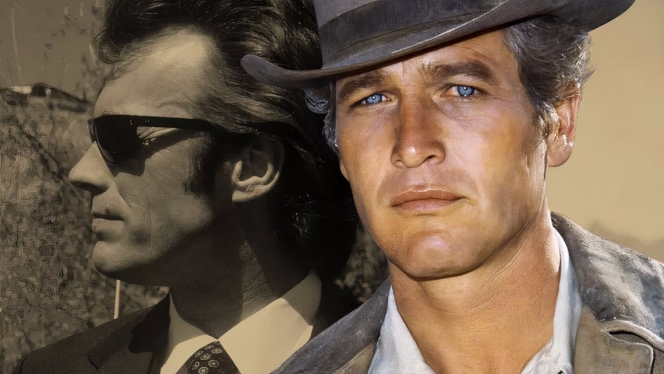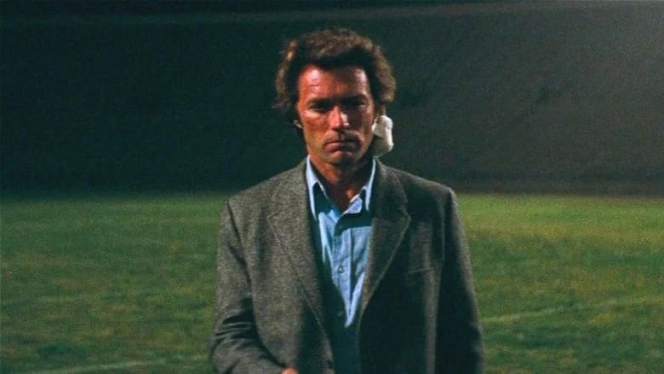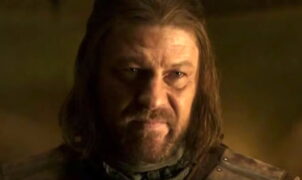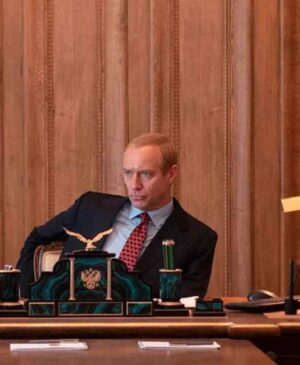MOVIE NEWS – Paul Newman turned down Dirty Harry because of the right-wing political themes – but he’s not the only big-name who didn’t like the story!
The cop drama Dirty Harry was one of Clint Eastwood’s most memorable and career-defining roles. Meanwhile, he gave new impetus to the genre and developed it further. Eastwood has brought the character to life with such conviction that it seems the role was made especially for him.
However, this is not the first time, nor even the second time Eastwood has been approached for the role, the actor is in a long line of famous actors who have turned down the role for various reasons.
Among them, however, one actor in particular helped Clint Eastwood get the role: Paul Newman. Newman was known for playing charming, rebellious characters, from Cool Hand Luke to Butch Cassidy and the Sundance Kid. It seemed conceivable that he would take on the role of the eccentric cop and deliver justice in his unique style. However, Paul Newman was adamantly against taking part in the film for personal reasons.
Paul Newman turned down Dirty Harry because of its right-wing messages
Paul Newman turned down the role of Harry Callahan in Dirty Harry because he felt the film did not fit with his political beliefs at the time. Newman was known for being outspoken on a wide range of issues, from opposing the Vietnam War to supporting gay rights and same-sex marriage to calling attention to global warming. He was a particularly big target at the time because of his opposition to the Vietnam War. He was also placed on President Nixon’s infamous “enemies list”. When the idea for Dirty Harry was pitched to him, Paul Newman felt that the ideology was too right-wing and diametrically opposed to his liberal beliefs. It was a radical form of justice that led Newman to this conclusion.
However, this does not mean that Paul Newman was opposed to anyone playing the role of Harry Callahan.
When Harry Julien Fink’s original script landed on his desk, he suggested that it be sent to Clint Eastwood. In an interview with Fresh Air, Clint Eastwood explained how he came to the project:
“Paul Newman had led me onto it. He told Jennings Lang, who is an executive at Universal at that time, that ‘there is a script that I read this exciting detective story, might be great for Clint,’ and, of course, when Jennings told me that, I said, ‘Well, how come Paul didn’t want to do it?’ He says, ‘Well, he had some questions about the political ramifications of what you have, but he thinks it’s an exciting story, and you might want to do it.'”
To say that Clint Eastwood accepted the role is an understatement. Not only did he star in the film, but he also helped produce The Malpaso Company and had a large creative say in the final outcome, tweaking and updating the script, including removing the extravagant ending involving Marine snipers.
Clint Eastwood also chose Don Siegel to direct the film, allowing him to retain creative control over almost every aspect of the production.
It should also be noted that Clint Eastwood never saw Dirty Harry as a political film. This position was confirmed by director Don Siegel. According to him, politics was never discussed during the filming. Instead, Eastwood said his take on Dirty Harry was “a display of frustration with our courts and our justice system.”
Paul Newman was just one of many actors who turned down the iconic role
Although Paul Newman’s refusal is the most famous in the history of the film, many actors have reportedly turned down the role. This was for different reasons, but many expressed the same sentiment as Newman. They found the work too crass or political for their image or personal beliefs.
To mention only the biggest names: Frank Sinatra, John Wayne, Robert Mitchum, Burt Lancaster, George C. Scott, and even Steve McQueen are among those who, citing various reasons, ultimately did not play the role of Detective Harry Callahan
All of these iconic performers make for an interesting “what if?” they make a movie. Still, it’s clear that everyone who rejected the project in the end helped Eastwood put his own creative energy into finally bringing the best result to the now-iconic film.
Source: Fresh Air, Far Out Magazine



![[TGA 2025] Star Wars: Galactic Racer Focuses on High-Stakes Podrace Runs [VIDEO]](https://thegeek.games/wp-content/uploads/2025/12/theGeek-Star-Wars-Galactic-Racer-302x180.jpg)









![[TGA 2025] Star Wars: Galactic Racer Focuses on High-Stakes Podrace Runs [VIDEO]](https://thegeek.games/wp-content/uploads/2025/12/theGeek-Star-Wars-Galactic-Racer-300x365.jpg)



Leave a Reply